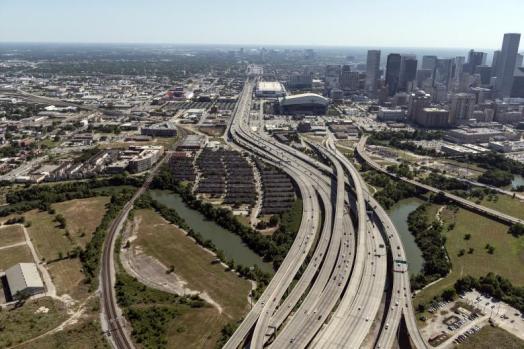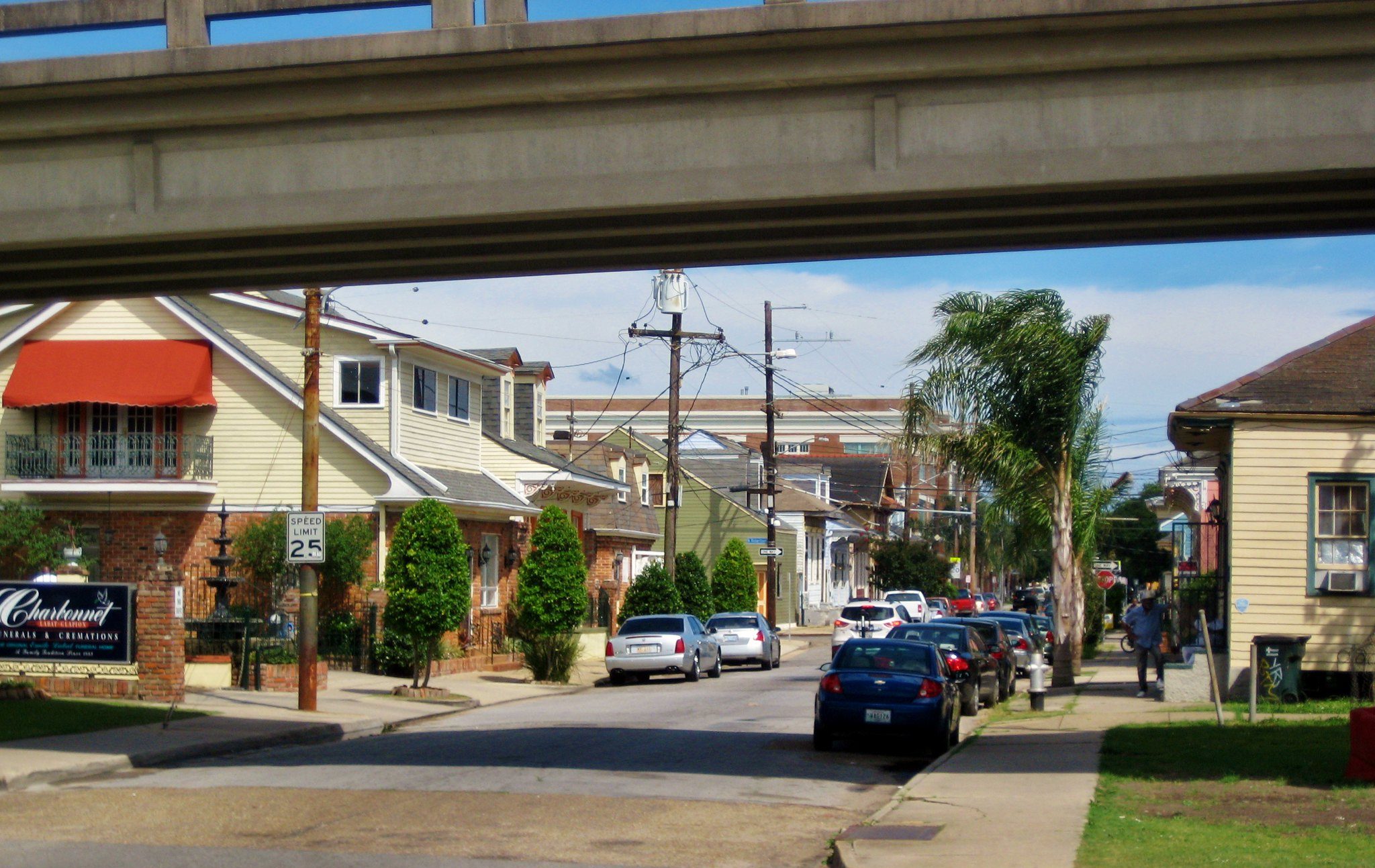Want to fix the racist legacy of America's highways? One rule of thumb applies: Two wrongs don't make a right.
Advocates hoping to reconnect mostly poor, communities of color that were severed by the highway construction of the early- and mid-20th century are learning that righting this historical wrong can only be accomplished by including the community voices that were ignored when the damage was originally done.
That was the key takeaway from “The Highway Divide,” a panel held last week at the Transportation Alternatives Vision Zero Cities conference, a session that was just as notable for what was said as for what wasn't. For instance, this supposed discussion of "reconnecting communities" and presentation of case studies throughout the country entirely ignored the example of I-81 in Syracuse, where a project that was slated to reconnect a largely Black community severed from downtown decades ago ended up being opposed by the community it purported to help.
That's the challenge of "reconnecting communities" in these early days of federal investment — in fact, the term itself has become a much-thrown-about buzz-phrase since the federal Department of Transportation launched its small "reconnecting" grant program with 39 sites getting planning grants and only six getting capital funding in February 2023.
Money isn't the only thing that needs to talk.
“Remember that communities are places where people live. And when you go into a community, you are really going into their home. So you can't treat it as somewhere else,” said Amy Stelly, a New Orleans designer and urban planner, who recommended a strong community engagement process.
Thus far, community reconnection has been hit and miss. Panelists discussed the highway expansion from Hell in Houston that is still happening despite massive protests; a subpar plan in New Orleans that seeks only to spruce up the underside of a much-hated existing elevated roadway; and privately funded swanky “highway cap” parks that function as window dressing.
None of these projects actually got rid of any highway.

Even though the Houston opposition failed, lessons can still be learned, said , Madeleine Pelzel, an architect-turned planner who engaged Houstonites to create an alternative plan (albeit unsuccessfully).
“Even if you don't end up actually stopping the freeway expansion in your community and your ‘cap-parks’ are up in the air, relational organizing will have benefits that pay off beyond those things," she said. "Drawing the details of projects in ways that are legible to the everyday person will always create more meaningful ways for them to engage on an issue, regardless of what that issue is, and even when there's not necessarily a beautiful park at the end of a process like this one, our somewhat intangible results did produce a much more engaged and informed public.”
From California, a state Transportation Department representative warned not to make “perfect the enemy of the good” when it comes to reconnecting communities projects.
“If we are going to sit here and wait until Caltrans or other state DOTs are doing everything right, then we are not going to have programs like this happening in 2024,” said Darwin Moosavi, the agency's deputy secretary for environmental policy and housing coordination.
Stelly is cautious about that old good vs. perfect adage, advising advocates to not be afraid to call out bad plans — like merely “activating” space under the elevated Claiborne Expressway rather than removing it.
“Push back on bad plans,” said Stelly. “There are millions being poured into a bad plan, and that plan is to put a marketplace under the polluted, dirty highway. Air quality under and around the highway is really, really bad. So we are proposing an alternative, more of a restorative plan for Claiborne, and our plan takes into account not only public health, but community values. Our primary goal is to push for highway removal, because we think that that is the only thing that will actually restore the community.”
If there was any successful project discussed, it was one from Dallas, where two landscape architects spoke about Klyde Warren Park, a “highway cap” set above the six-lane Woodall Rodgers Freeway. The park is privately managed by the Woodall Rodgers Park Foundation, and was built with significant private investment to connect Dallas’s Uptown neighborhood with its Arts District and downtown business center.
The presenters both focused on a reality that may not be replicable elsewhere: the park’s revenue-generating opportunities and popularity with the local business community is what made it a successful project.
“[Klyde Warren Park] is owned by the City of Dallas, but it receives no annual public funds to operate it,” said Tara Green of OJB Landscape Architecture. “It was a combination of federal money, state transportation money, a bond, and the private sector — $97 million was needed to build it, they raised $112 million. What it has done is unlocked economic value. Now, when the park opened in 2012, there was about $2.5 billion in value in the new public improvement district.”
The park took 10 years from the first proposal to opening day. New projects in the planning phases now, with help from the federal grant money, have a long road ahead.






